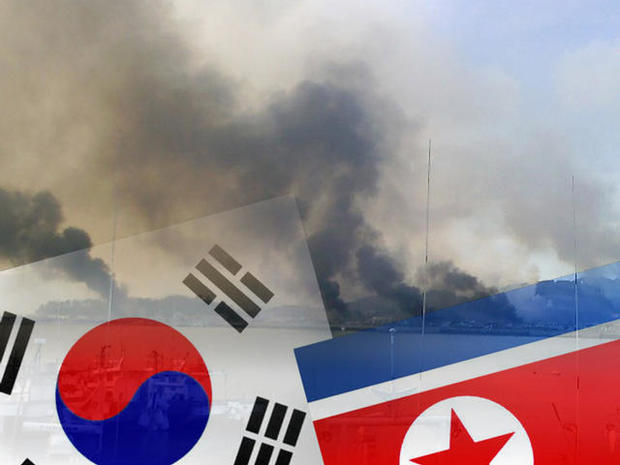North Korea on the "Brink of War" ... Again
Following Tuesday's shelling by North Korea of Yeonpyeong island off South Korea's coast that left at least four people dead, the North Korean state press agency said the Democratic People's Republic of Korea had been "pushed to the brink of war," according to several wire reports.
"There is neither way to improve [relations] nor hope to bring them on track," North Korea's KCNA news agency quoted the Committee for the Peaceful Reunification of Korea as saying. "The confrontation between the North and the South in the political and military fields has been put to such extremes that the inter-Korean relations have reached the brink of a war."
Considering the large scale death and bloodshed of the war on the Korean peninsula just 50 years ago, statements like this should cause at least a mild panic in the international community.
Yet that kind of rhetoric has become so commonplace that U.S. State Department spokesperson Mark C. Toner said in a press conference Tuesday only that the U.S. and its allies would undertake a "measured and unified" response to North Korean hostilities.
"It is a pattern, absolutely," said Toner, in reference to North Korea's hostilities and bellicose rhetoric. "We've seen this story before. We're not going to buy into this reaction-reward cycle that North Korea seeks to perpetuate."
Watch: Obama Promises to Protect South Korea
U.S., S. Korea to Flex Muscle in New War Games
Caught on Tape: North Korea Shells South Korea
Whether DPRK's war rhetoric is a provocation or a genuine warning is hard to decode. In fact, the day before the shelling, KCNA warned that long-planned U.S.-South Korean joint military exercises scheduled to take place this week were "a criminal act of aggression for provoking another Korean war, (and) are pushing the situation of the Korean Peninsula to the brink of war."
Last June, following the sinking of a South Korean warship in international waters which killed 46 South Korean sailors, North Korea reacted angrily when blamed for the incident, even though an extensive investigation showed that it was a North Korean torpedo that did it.
At the time, KCNA wrote in a story that South Korea "faked up the incident" in an attempt to distract the world from its elections and that "those seeking a war and confrontation, estranged from the nation, are bound to face a miserable end."
Threats of war and a miserable end to its enemies by North Korea are nothing new - so much so that a South Korean official told UK daily The Independent after the shelling that "there is no need to react sensitively or get happy or sad over every single statement issued with some political motive."
The difference this time is that blood was spilled, and there is no sign of backing down on either side.
North Korea said after the shelling: "Should the south Korean puppet group dare intrude into the territorial waters of the DPRK even 0.001 mm, the revolutionary armed forces of the DPRK will unhesitatingly continue taking merciless military counter-actions against it."
South Korea responded with this official statement: "The Armed Forces of the Republic of Korea immediately and strongly responded to the provocation. The South Korean military will retaliate against any additional acts of provocation in a resolute manner."
Against this backdrop, the U.S. remains committed to holding long-planned joint military exercises with South Korea. The USS George Washington aircraft carrier group is scheduled to arrive in the region Nov. 28, and will serve as a sign of "the strength of the ROK (Republic of Korea)-U.S. Alliance and our commitment to regional stability through deterrence," according to a White House statement Tuesday.
Given its history, North Korea will likely have a response to that as well.
